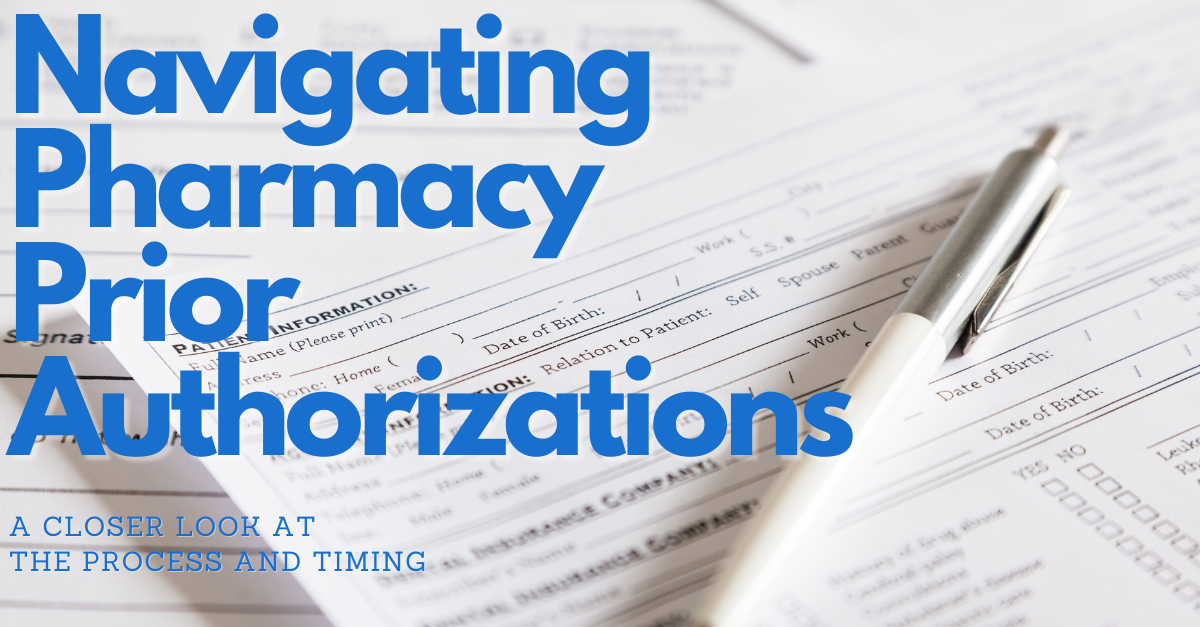Prior Authorization (PA) is a common term in the healthcare and pharmacy sector, signifying a restriction put in place by insurance companies to ensure appropriate, cost-effective usage of medications. PAs are frequently required before a health insurance plan agrees to cover the cost of a particular medication or service. Here, we delve into the intricacies of pharmacy prior authorizations and how Scriptly Pharmacy Management can help ease the process.
The Process of Pharmacy Prior Authorization
1. Identification of Requirement:
When a physician prescribes medication that requires prior authorization, the pharmacy is usually the first to identify the requirement. The pharmacist will inform the patient and their physician about the need for a PA when the prescription is submitted for filling.
2. Physician’s Role:
The physician must then complete a PA form, detailing the medical rationale for the prescription, including diagnoses, past treatments, and any supporting medical records or documentation. The form is sent to the insurance company for review.
3. Insurance Review:
Once received, the insurance company reviews the PA request, considering medical necessity, availability of alternatives, cost-effectiveness, and appropriateness of the treatment. A team of clinical reviewers, typically comprising pharmacists and doctors, evaluates the documentation to determine whether the treatment is medically necessary and complies with the insurer’s policy.
4. Decision and Communication:
After review, the insurer will either approve or deny the PA request. This decision is communicated to both the prescribing physician and the patient. If approved, the pharmacy can process the medication as covered by the patient’s insurance. If denied, the patient and physician may need to consider alternative treatments or appeal the decision.
Time Frame for Initiating Care
The duration of the PA process can vary widely, often depending on the insurance company’s efficiency, the completeness of the submitted documentation, and the level of urgency associated with the medication. Typically, the process can take anywhere from 24 hours to several weeks.
- Urgent Requests:
- For immediate, life-saving medications, prior authorizations can sometimes be expedited and processed within a few hours to 24 hours.
- Standard Requests:
- More commonly, standard PA requests may take between 3 to 15 business days. In some cases, additional information or clarification might be needed, further extending the processing time.
- Appeal Process:
- If a PA is denied, the appeal process can extend the timeline further, possibly delaying the initiation of care by several additional weeks.
Impacts on Patient Care and Solutions:
Delays due to prior authorizations can pose significant risks to patients, especially when immediate treatment is crucial. It can lead to worsening health conditions, increased hospitalizations, and higher healthcare costs. Here are a few strategies to alleviate these concerns:
- Electronic Prior Authorization (ePA): Scriptly Pharmacy Management has integrations in place to help physicians navigate the PA process, including Pharmacy Initiated ePA. This solution allows physicians and their staff to communicate clinical information to the pharmacy and allows the pharmacy to submit to ePA on behalf of the physician. With this process, PA requirements can be satisfied in as little as 15 minutes!
- Patient Advocacy: Educating patients about their rights and the PA process can empower them to advocate for themselves, potentially speeding up approvals. Scriptly’s Patient Engagement Platform, Scriptly Connect, ensures that patients are aware of the status of their prescriptions and, if appropriate, what they can do to help speed up the process.
- Provider Education: Training healthcare providers on the proper completion of PA forms and submission of complete, accurate documentation can reduce delays caused by requests for additional information. Scriptly Provider Portal prompts physician offices for the information needed, ensuring timely submission of ePAs.
Conclusion:
Pharmacy prior authorizations serve as a safeguard, ensuring the appropriateness and cost-effectiveness of medications and treatments. While they are crucial for maintaining the sustainability of healthcare systems, the process can be time-consuming and, at times, may hinder timely patient care. Implementing Scriptly Pharmacy Management ensures efficiency, empowers patients, educates providers, and saves valuable pharmacy staff time to help mitigate delays and ensure patients receive the appropriate care they need promptly.

